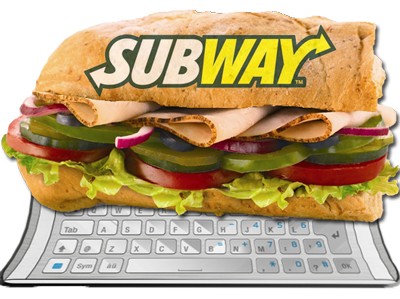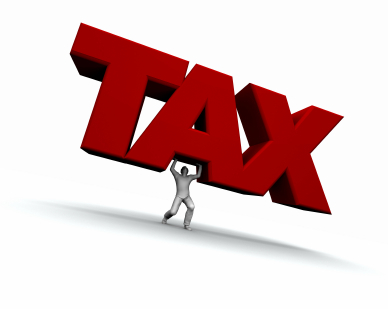
Article Contributed by GlobalBX.com
Every year, Entrepreneur magazine names its top franchises for sale, gathered up into a list called the “Franchise 500.” By referring to this list, prospective franchise owners can determine the top franchise for sale in any number of categories—the best fast-food franchise, the best auto service franchise, the best do-it-yourself picture framing franchise, and so on. This publication also names the 10 best franchises for sale regardless of the industry they are in, and it is this list that offers the most coveted ranking of all. The “next hottest franchise concept” certainly has a chance to advance in the standings. But year after year, the same companies continue to dominate this list, mainly because they have superb brand recognition, a solid financial base, highly satisfied franchisees committed to excellence, and products or services that have stood the test of time. As Entrepreneur sees it, here are the top 10 franchise companies for 2009.
1. Subway
The top company on this list has gained a reputation for offering fresh, healthy food at very reasonable prices. They also come up with some very innovative national marketing campaigns to keep the name “fresh” in the public’s eye. Subway began franchising in 1974 and has more than 21,000 franchises in the United States. The company charges a franchise fee of $15,000, with ongoing royalties of eight percent based on gross annual sales. One’s total investment will run from between $78,000 and $238,000. Subway has franchises for sale in nearly every U.S. state.
2. McDonald’s
Ray Kroc took a California hamburger joint owned by two brothers and turned it into the world’s largest fast-food restaurant chain. Over the years, McDonald’s has been an innovator from the aspects of both service and menu items, inventing such concepts as the kids’ meal and drink tops with pre-punched access holes. The company charges a franchise fee of $45,000, with ongoing royalties of 12.5 percent based on gross annual sales. One’s total investment will run from between $950,000 and $1.8 million. McDonald’s has a franchise for sale to residents of every U.S. state, plus worldwide opportunities exist as well.
3. Liberty Tax Service
With the tax deadline of April 15 looming over the heads of U.S. citizens every year, more and more taxpayers realize that it pays to hire an outside expert to help them complete their filings. The company started as Jackson Hewitt Tax Service in 1972 (and began franchising a year later) and changed its name after buying out another tax business in Canada. The company charges a franchise fee of $40,000, with variable ongoing royalties based on gross annual sales. One’s total investment will run from between $56,000 and $70,000. Liberty Tax Service has franchises for sale to anyone living in the U.S. or Canada.
4. Sonic Drive-In Restaurants
This company started as a root beer stand in 1954 in Shawnee, Oklahoma, jumping into the franchise business five years later. Today there are close to 3,000 Sonic Drive-In franchises across the country. The company charges a franchise fee of $45,000, with ongoing royalties ranging from two percent to five percent, based on gross annual sales. One’s total investment will run from between $1.2 million and $3.2 million. Sonic currently seeks out residents of Canada, New Zealand and Australia, offering exclusive territories in its franchise for sale.
5. InterContinental Hotels Group
The flagship property in this massive chain is the self-named InterContinental, which include some of the most prestigious hotels in such world capitals as London, Paris, Vienna, Cairo, Nairobi, and many others. This hotel conglomerate also includes such familiar brand names as Holiday Inn, Crown Plaza, Staybridge, and Candlewood. There are more than 2,600 franchises in the U.S. alone, as well as another 800-plus in foreign countries. Franchise fees and total investments will vary widely, since every property is unique. The company charges an ongoing royalty of five percent based on gross annual sales. InterContinental has franchises for sale in Oregon as well as assorted worldwide locations.
6. Ace Hardware Corp.
The neighborhood hardware store is alive and well in the guise of Ace, a national chain that prides itself on hometown values and helpful personnel who can tell you the best way to paint a door or repair a fence. The company began in 1924 and became a franchise operation in 1976. There are currently more than 4,200 U.S. franchises. The company charges an application fee of $5,000, and one’s total investment will run from between $400,000 and $1.1 million. Ace Hardware has franchise for sale opportunities in all U.S. states.
7. Pizza Hut
In 1957, when this pizza chain started business as a single restaurant in Wichita, Kansas, no one would have suspected that it would grow into the largest pizza restaurant chain in the world. Today there are nearly 10,000 franchises in existence, including “express” and kiosk locations that expose Pizza Hut products to more people than ever. The company charges a franchise fee of $25,000, with ongoing royalties of six percent based on gross annual sales. One’s total investment will run from between $317,000 and $2.9 million. Pizza Hut has franchises for sale in Oregon as well as assorted worldwide locations.
8. The UPS Store / Mail Boxes Etc.
Mail Boxes Etc. started in 1980 as a competitor to the U.S. Mail and has since expanded to offer all kinds of services that include the sale of packing materials, copying and printing, mailbox rentals, and shipments of darned near anything to anybody who has a permanent address. Re-branded as The UPS Store – although it ships by other carriers as well – the company charges a franchise fee of $30,000, with ongoing royalties of five percent based on gross annual sales. One’s total investment will run from between $155,000 and $295,000. The UPS Store has franchise for sale opportunities in all U.S. states, plus various locations worldwide.
9. Circle K
This convenience store chain was founded in 1951 in El Paso, Texas. They waited until 1995 to begin franchising, but since then Circle K has seen its U.S. franchises grow to more than 450. Surprisingly there are nearly 3,700 franchises overseas. The company charges a franchise fee of $15,000, with ongoing royalties of four percent based on gross annual sales. One’s total investment will run from between $161,000 and $1.4 million. In a nationwide expansion mode, Circle K has franchises for sale across the United States as well as in assorted worldwide locations.
10. Papa John’s International
This pizza chain got its start in 1985 in Jeffersonville, Indiana. Papa John’s has more than 2,100 U.S. franchises and close to 500 on international soil. The company charges a franchise fee of $25,000, with ongoing royalties of five percent based on gross annual sales. One’s total investment will run from between $135,000 and $490,000. Papa John’s has franchise for sale opportunities in all U.S. states.
About the Author
Thinking of starting a business or buying a franchise for sale? GlobalBX.com provides a FREE business for sale exchange with over 32,000 businesses and franchises for sale. Get FREE information on all the top franchises today!
Tag: business

Starting down a new career path can be both exciting and terrifying. There are a lot of tools on the market that can help you determine what type of career field you should enter. But what if your chosen “career path” is being an entrepreneur and running a home-based business? Do the rules change? Below are five questions to ask yourself to help you determine what type of business might be right for you.
1. What is your passion?
Answer this question with the first thing that comes to mind: If money were no object and you could do anything, what would you do? You might have answered “be a writer”, “speak at conferences,” “bring my product idea to life” or any number of things. Whatever your answer, this most likely is your passion. I challenge you to take the time to ponder this and see if there is a way to bring your dream to fruition.
2. What types of things did you like to do as a child?
Many times the toys and games we loved as children give us a glimpse into who we have become as adults. If you loved climbing trees, you may now be an “outdoorsy” type of person. Think about how this might be incorporated into your business. For instance, you might enjoy setting up outdoor birthday parties for children or selling herbs from your backyard garden.
3. What type of products would you be interested in representing?
If you’re looking in the direction of direct sales, whether that be your own product or an established home-based business option, you need to think through what types of products you’d be comfortable presenting to your customers. Take the time to do some research and find a product that truly excites you. Your customers will see your sincerity and that can sell a product just as easily as a fancy presentation.
4. What skills and experience do you bring to the table?
If you’ve left the corporate world in favor of working at home, you’ve undoubtedly brought with you a set of skills. There may be a way to market those skills in a new way and turn them into a profitable business. For instance, if you were an executive assistant you may be able to type 80 words or more per minute. You could set up shop as a Virtual Assistant and help other business owners in processing orders, transcribing documents and much more.
5. Are you thinking outside of the box?
Most of us have a fear of the unknown. We many times assume that if we haven’t done something before it is simply out of reach. This carries over to the business world as well. We take our products or services and market them in the same way that we see other business owners using. However, it can be much more effective to find new and innovative ways to market. One home-based business owner I know sells stuffable toy kits. Instead of using the usual home parties and birthday party events, she works almost exclusively with children’s hospitals doing fundraisers. She makes a great living and helps not only the hospitals, but the children as well. She is a great example of unique marketing and overcoming the mundane marketing methods that so many business owners resign themselves to.
Your home-based business should be unique to you. It should make you want to get up each morning excited about the possibilities of the day ahead. Take the time to thoroughly think through the questions above and you’ll be on your way to making a great, well thought out decision that has your name written all over it!

HMRC enquire into approximately 75,000 self assessment tax return each year which often results in extra tax being payable because business turnover has been understated or non allowable business expenses have been claimed, resulting in interest and penalties on the extra tax for that year and sometimes previous years. Avoid extra taxes, interest and penalties with these top tax questions.
What is Business Turnover?
Sales turnover is the amount the business earns before deducting business expenses including receipts of any kind for goods sold or work done such as commission, tips, payments in kind, fees and insurance proceeds. The turnover to be included in your financial accounts is the date it was invoiced or earned and not the date it was received.
What is excluded from Business Turnover?
Sales turnover excludes sales of fixed assets such as premises, vehicles and plant and equipment. Also exclude business start up allowances which are entered separately on the self assessment tax return. Money introduced to the business is excluded being capital introduced and not sales turnover.
What business expenses are allowable?
All running costs incurred solely for the purpose of the business may be deducted as allowable business expenses for Tax purposes including goods bought for resale, employee wages, premises rent and overheads, administration costs, vehicle running costs. Interest on loans and overdrafts can be claimed as business expenses excluding the capital element of repayments. Higher business expense levels accurately recorded can keep taxable profit below the higher tax rate.
Can the cost of buying and repairing plant and machinery be claimed?
Repairs and maintenance costs are allowable business expenses. The purchase cost including improvements and replacement costs are not allowable business expenses, these costs being subject instead to capital allowances. Depreciation is not allowed and replaced by Capital Allowances for the purposes of calculating the tax payable.
What are Capital Allowances?
Capital allowances are designed to write off the cost of purchasing a fixed asset over the life of the asset rather than in the financial year in which it was purchased. Capital allowances on the majority of assets are based upon a higher rate of allowance in the year of purchase, First Year Allowance with the balance of the cost being written off at a lower rate, Writing Down Allowance. The full cost of any asset may be claimed as an expense in the year it is sold or scrapped less the total of accumulated capital allowances that have been claimed against taxable profits. Any sales proceeds over and above the written down value after Capital Allowances is added back to net profits and becomes taxable. Cars are subject to writing down allowances but not First Year Allowances unless they are classed as commercial vehicles. DIY Accounting has small business software templates that automate the calculation of capital tax allowances.
Can expenses incurred for both business and personal purposes be claimed?
No. HMRC only allow such expenses if the business expenses element of the cost can be separated from the personal element. If you claim the travelling expenses to buy business goods they can be claimed for tax purposes but would be disallowed if you also showed evidence of personal items being purchased on the same journey. Using your home phone is an allowable business expense if you claim specific identified business calls in which case you would also be able to claim a similar proportion of the rental cost.
Can vehicle costs be claimed when that vehicle is also used for personal use?
Vehicle running costs and expenses such as fuel, excise duty, insurance, repairs and breakdown membership may be claimed as business expenses if the vehicle is used solely for business purposes. Travel from home to work is not business use and disallowed. Vehicle running costs, and capital allowances on vehicles, are split between claimable costs and a disallowed cost depending on the proportion the vehicle is used for business and personal use. Parking fees for business purposes may be claimed, parking fines and penalties for motoring expenses are not claimable as business expenses for tax purposes. An alternative to claiming vehicle running costs and vehicle capital allowances would be to claim mileage allowances which at the time of writing are 40p for the first 10,000 miles and 25p per mile thereafter a feature of which the DIY Accounting small business software automates
Can Business trips be claimed?
Travelling expenses and modest lunch expenses may be claimed. Hotel and reasonable costs of subsistence may also be claimed. A subsistence allowance can be claimed if staying with friends or family as an alternative to an hotel. The cost of lunch may not be allowed when staying away overnight. Lunch with clients is regarded as entertainment and is not allowed. If you are accompanied on a business trip by family only your cost is allowable and specifically only if the trip was purely for business purposes. Expenses on combined business and personal trips are not allowed to be deducted as business expenses on tax returns.
Can home costs be claimed?
If part of your home is identifiable as solely for business purposes then running costs can be claimed. The cost allowed is the proportion of the total area of the home the business area occupies. For example, excluding shared facilities of kitchen and toilet if the home has three bedrooms, living and dining room and one bedroom is used solely as an office then 1/5 of home costs could be claimed. The costs to claim would be heat and light, insurance, general and water rates and mortgage interest excluding repayment amounts. Where mortgage interest is claimed the revenue might also claim as a capital gain the increase in value of that proportion of the home, such Capital Gains Tax being subject to tapering relief over time.
How do I treat business goods taken for my own use?
Any business goods taken for personal use should be added to sales at normal selling prices including items supplied to family and friends at less than normal prices. He cost of providing services for family and friends is not allowable as a business expense.
Can I deduct my salary or drawings as a business expense?
You cannot deduct your own wages, personal national insurance or drawings from the business as a business expense as these are distributions of the business income after net taxable profit has been calculated and not allowable expenses before tax..
Can I deduct my partners wages?
Yes partners wages can be deducted as a business expense although there are rules which would be applied in such circumstances to ensure the amount paid is both real and reasonable. The business would need to operate a PAYE scheme for that employee, deducting income tax and national insurance, the work carried out must be real not invented and the rate paid reasonable for the nature of the work and the time spent. Evidence may also be required that the amounts were actually physically paid to that partner, for example in the form of a cheque.
Should Tax Credits be included?
No these are excluded from business profits although the level of credit received may subsequently be changed in the light of the actual business profit earned compared with the amount declared when the Tax Credit was applied for. HMRC do check that the net taxable profit shown on the tax return is the same as that declared when the Tax Credit was claimed.
Can I claim expenditure incurred prior to trading commencing?
Yes business expenses incurred up to seven years prior to trading commencing can be claimed. The actual date of the expenditure should be recorded although all pre-trading expenditure is treated as having been incurred on the first day of trading.
Are pool cars taxable?
Company cars are taxable as a taxable benefit while pool cars are not taxable. To qualify as a pool car, private use should be incidental to business use, the vehicle should not normally be kept at the employee home and the vehicle must be available and used by more than one employee.
 Terry Cartwright qualified as a Chartered Management Accountant and Chartered Company Secretary in 1971. A successful business career followed as Head of Finance for major companies in the UK and several consultancy appointments. In 2006 he created DIY Accounting producing Accounting Software for self employed and small companies that use simple accounts spreadsheets to automate tax returns.
Terry Cartwright qualified as a Chartered Management Accountant and Chartered Company Secretary in 1971. A successful business career followed as Head of Finance for major companies in the UK and several consultancy appointments. In 2006 he created DIY Accounting producing Accounting Software for self employed and small companies that use simple accounts spreadsheets to automate tax returns.

Building a successful long-term profitable business isn’t about “marketing” your business, it’s about “managing” your business – the marketing comes once you have your management systems in place.
You cannot begin to market your business if you can’t find the information you need, don’t know who you are marketing to, and don’t know where you are in your business.
So, let’s go back to basics and take a look at one of the key office organization systems you need to have in place to “manage” your business before you can start to “market” your business – your contact management system!
If set up correctly your contact management system allows you to:
* Keep a note of clients, potential clients, and colleagues contact information.
* Easily and effectively follow-up with a prospect.
* Locate critical client contact information quickly and easily.
* Build your business.
Having all of your contact data readily to hand will allow you to build your business. You have all the information you need; it’s all in one place, and you can locate it quickly and easily. Follow-up becomes a much smoother process and in turn it builds your business.
Let me share with you below my 5 easy steps for creating your ideal contact management system so that you constantly have a full pipeline of interested clients and prospects:
1. Choose your system. You need to decide on a system that works best for YOU and YOUR business. This could be using Outlook (as I do) to manage all your contact data, appointments, To Do lists, etc. or you could use dedicated contact management software. A third option might be to utilize one of the many web-based contact management systems.
2. Draw clients into your pipeline. Once you’ve got your contact management system in place, you need to have a system for keeping in touch with people you meet at in-person events, online networking forums, or visitors to your website. One way to do that is to publish a regular ezine (electronic newsletter). This will keep clients and prospects flowing into your business and provide you with a base of interested people who want to find out more about you, your services, and your products.
3. Define the process for working with new clients. Once you’ve got prospects into your pipeline the next step is to create a system so that those clients who are ready to work with you are able to do so. This could be through an initial complimentary consultation to determine if you are a good fit for one another. List everything you currently do and come up with a system for streamlining the whole process.
4. Keep it all up-to-date. It’s all well and good having the systems in place, but if you’re not keeping it all current, then your contact management system quickly becomes of no use to you at all. Ideally, you should be updating your client data as you go along, but if you find you’re not doing that, spend 15/20 minutes at the end of each day, before you shut down your PC, reviewing who you’ve talked to/emailed, what the outcome was, and when you promised to follow-up with them. Note it all down in your contact management system.
5. Create a waiting list! If you find that you have more clients wanting to work with you than you can handle, offer to put them on your waiting list. If you suddenly get a client who has to cancel (and it does happen, for a variety of reasons), then you’re not left with a big hole in your cashflow – you simply approach your waiting list and let them know you have an opening available. Plan to keep in touch with your waiting list on a regular basis so that they don’t forget you!
Consistency is the key to keeping a steady flow of clients and prospects coming into your business. Make the commitment to spend time each and every day on your contact management system, and watch your business grow!
Does Size Truly Matter?

Sometimes size does matter. When talking about a piece of chocolate cake – bigger is always better. When evaluating new cell phones – smaller gets the nod. In franchising, there are some advantages to being part of a large franchise system and other advantages to joining a small system. The question is not, “Which is better?” but “Which is better for you?”
Advantages of Large Franchise Systems
Everyone is familiar with the really big franchise companies such as McDonalds, Subway. Each has over 25,000 units and they are ubiquitous around the country if not the world. Since franchise companies generally start out with a single unit, growth of this magnitude takes years and years to achieve. Large franchise companies have had the opportunity to test and prove their value over and over again, which is the main attraction of franchising ? a proven operating system.
Perhaps the most obvious advantage of a large franchise is name recognition. When you see the Golden Arches your mouth will start watering even before you smell the hamburgers frying. Larger systems will have larger advertising budgets, meaning there will be more, and usually better, national advertising campaigns, increasing name recognition. Even moderately large systems, those with units numbering in the hundreds, have been around long enough to have tweaked their operations to the point they provide a pretty low risk to potential buyers. A smaller or newer franchise system may have to adjust their operations many times before achieving optimal results.
Support is an additional advantage of being a franchisee in a large franchise system. To achieve growth, a company will need to have a dedicated support staff that can help franchisees with any issue or problem. Also, larger companies are more likely to provide new franchisees with such specialized resources as demographic profiling, real estate assistance and technical support.
Advantages of Small Franchise Systems
With all of the advantages of a large franchise system, not everything is a bed of roses. First of all, there’s the whole idea of being a small fish in a large pond. If you like individualized attention, in a small system you may have a direct line to the company’s president or vice president. In a large system, you contact person may be a low-level employee in the giant corporate structure.
Franchisees in a small franchise system can have a greater say in the business as a whole and will sometimes have more flexibility in managing their own businesses. Once a system grows to a substantial size, there will generally be extensive rules for franchisees as well as a staff who ensures the compliance of each and every regulation – from the color of your businesses’ roof to the way you greet customers at the counter. At a smaller franchise system you will usually find fewer rules. If you like to do a bit of experimenting, a smaller franchise company may allow you to do so and will even welcome your ideas and suggestions.
Another advantage of smaller franchise systems is that they are less likely than large franchisors to be sold out in your area. If you want to join a large franchise, you may have to wait until an existing franchisee wants to sell.
And that brings up another point: Subway does not need to look for franchisees. They probably get hundreds of inquiries every week if not every day. Of those inquiries they are only going to be interested in awarding franchises to people with very strong qualifications. A smaller, newer franchise company is going to be more interested in you and may be willing to make accommodations so that you can join the team.
The franchise company and the people running it are more important than the size of the business as far as franchisee satisfaction goes. If you are interested in a business but unsure if you’d be a good fit, there’s one sure way to find out and that’s by talking to a number of franchisees in the system.
You will need to ask if they felt the support and training they received prior to opening their franchise unit was adequate. Find out how they feel about the support they are currently receiving and if they feel they are on track to meet their financial goals.
Both large and small franchise concepts have advantages and disadvantages so the more you understand about the company and your role as a franchisee, the better equipped you will be to make the decision.
 Kimberley Ellis is the President of Bison.com, a leading online resource for franchise and business opportunities. She has been quoted as an industry expert in USA Today, Wall Street Journal and a variety of local and regional publications regarding trends in business and franchising. Kim combines her entrepreneurial spirit with a diverse background in marketing and operation to help others succeed in franchising.
Kimberley Ellis is the President of Bison.com, a leading online resource for franchise and business opportunities. She has been quoted as an industry expert in USA Today, Wall Street Journal and a variety of local and regional publications regarding trends in business and franchising. Kim combines her entrepreneurial spirit with a diverse background in marketing and operation to help others succeed in franchising.